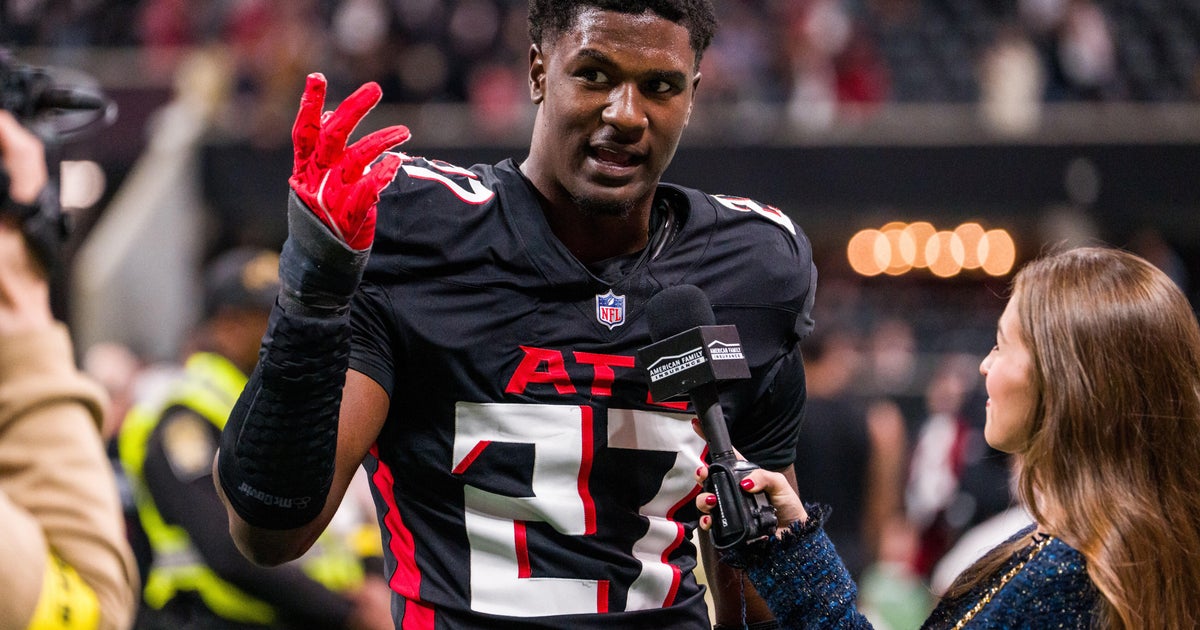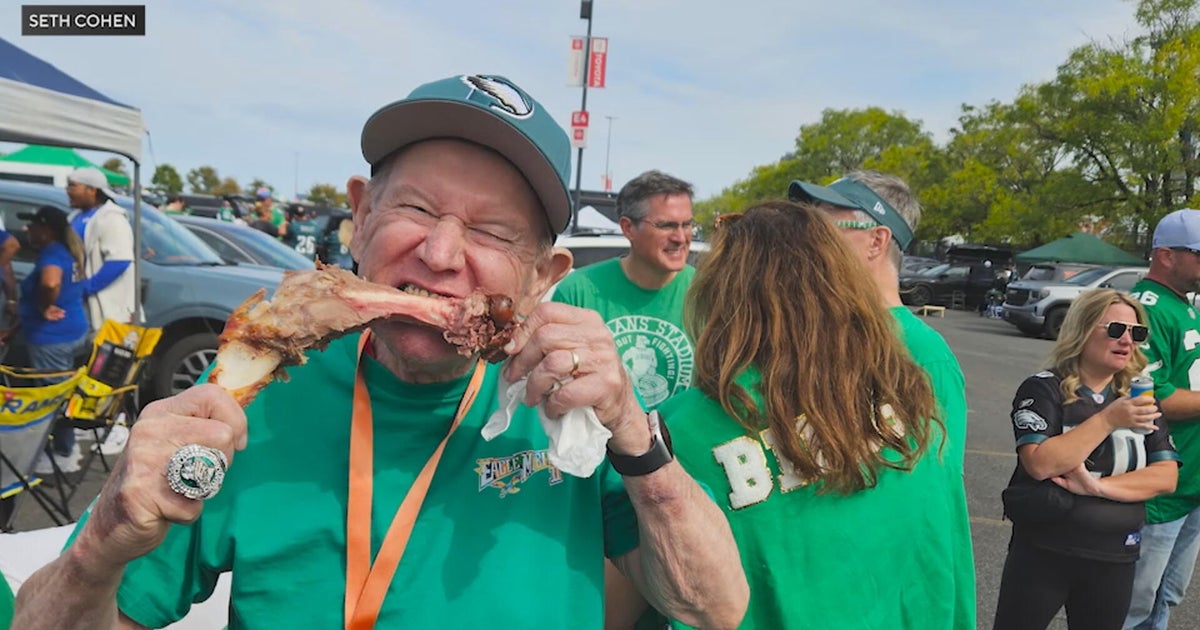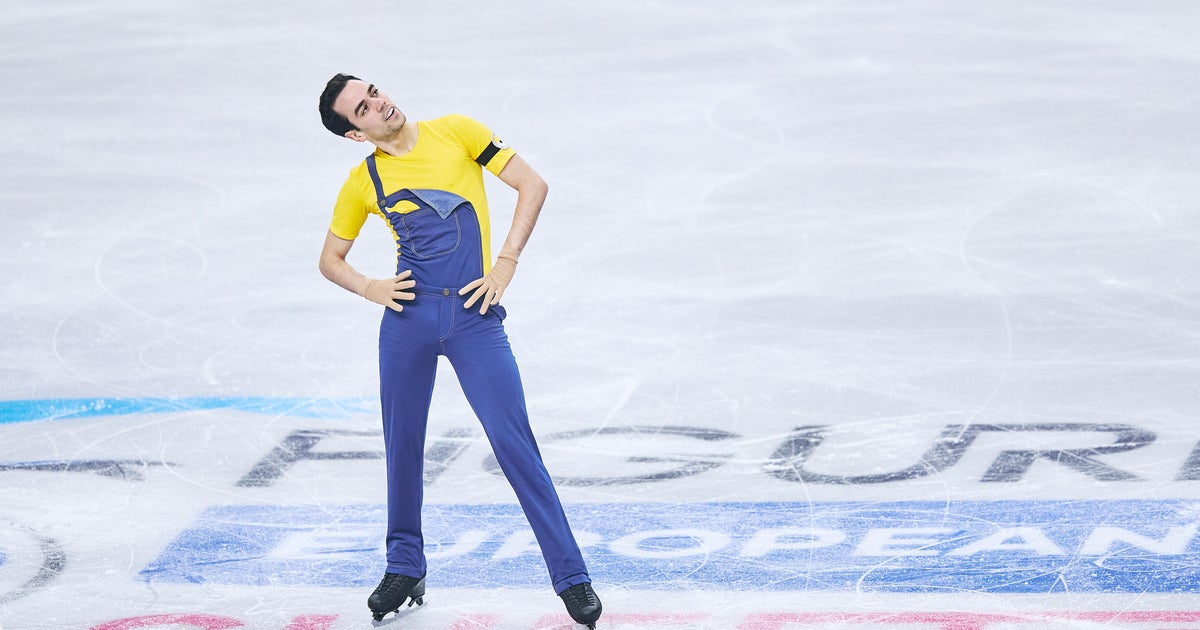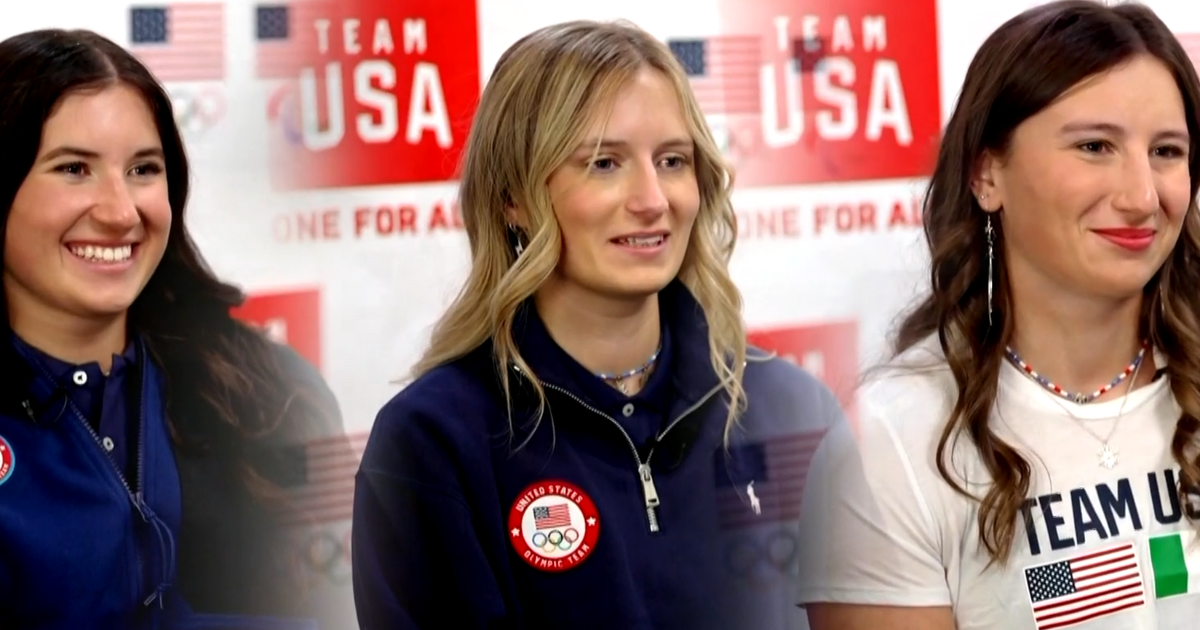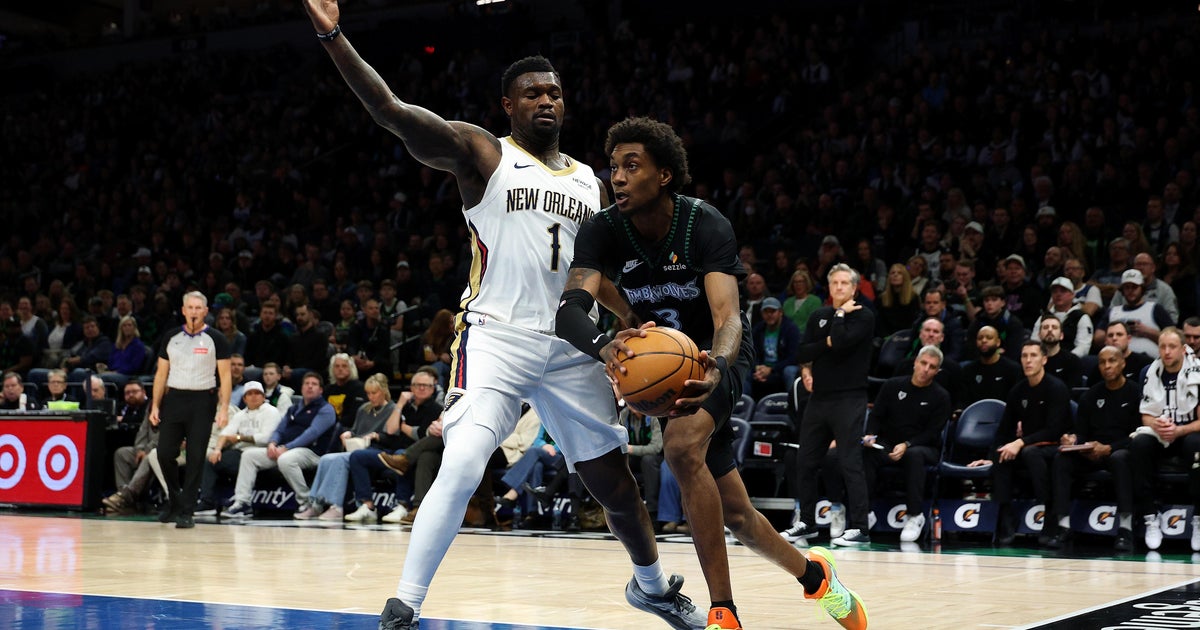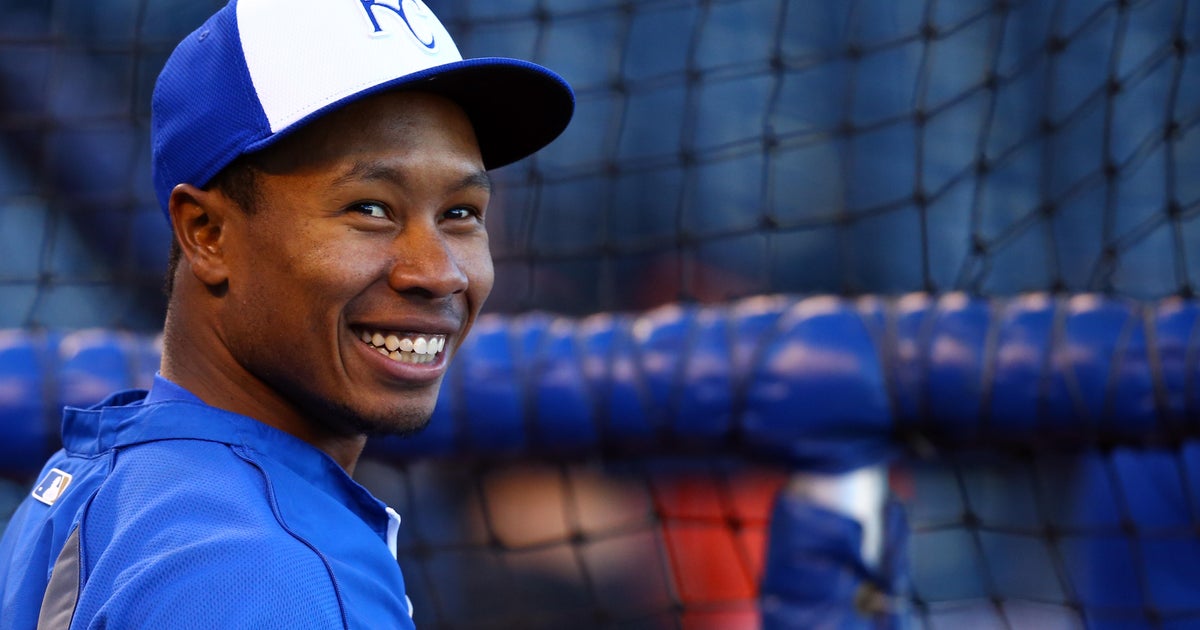DiCaro: Dusty Baker Doesn't Get It (Again)
By Julie DiCaro--
(CBS) Dusty Baker is a great guy. Dusty Baker is a good man. Everyone loves Dusty Baker.
This is the refrain echoed across Major League Baseball every time Baker puts his foot in his mouth, which is pretty much every time he's in front of a microphone. From walks clogging the basepaths to a veritable manifesto on the respective attributes of the races, Baker has shown time and time again that he's not averse to having to issue clarifications of his words.
Tuesday was another one of those days for Baker, who stepped in it time and time again in the short space of his media availability at the Winter Meetings in Nashville. This time, though, Baker did society a favor, succinctly summarizing every problem with prosecuting domestic violence cases in just a few sentences.
To set the scene, word came late Monday that a deal that would have sent Reds closer Aroldis Chapman to the Dodgers fell apart after the Dodgers learned of a particularly violent domestic dispute at Chapman's Miami home in October.
From Yahoo:
Chapman told police he wanted to drive away but friends wouldn't let him, according to the police report. He entered the passenger's-side door of his Land Rover, punched the window and cut his left pinkie knuckle, the report said. Chapman then said he retrieved the handgun from the glove compartment and locked himself in the garage alone. "He then shot several shots inside the garage and threw his pistol away inside the garage," the report said. Chapman's driver moved the gun from the garage back into another vehicle, a Cadillac Escalade, according to the report.
Chapman said friends took him into a room and locked the door, according to the police report. When police arrived, others exited the house, the report said. Chapman, according to the report, was the last one out.
As Chapman's former manager in Cincinnati, Baker was asked about his thoughts on the news. And that's when Dusty went full Dusty. (Note: You never want to go full Dusty.)
A transcript:
Q. Dusty, you had Aroldis Chapman when he broke into the majors. What was that process like? Were you surprised by the report?
DUSTY BAKER: I don't believe reports. Who knows why? I'm not one to judge on how the whole thing happened.Q. What do you know about the guy?
DUSTY BAKER: Oh, he's a heck of a guy. I mean, a heck of a guy. I'll go on record and say I wouldn't mind having Chapman. No, no, he is a tremendous young man with a great family, mom and dad, and what he went through to get here and what his family had to go through to get here. I was with him through the whole process.There was a couple times when I had to stop him from quitting or going back to Cuba because he was lonely for his family. So I went through a lot of stuff with Chapman. I got nothing but love for the young man.
Q. Were you surprised by — I don't know how much you read about the allegations.
DUSTY BAKER: I didn't read it.Q. Are you surprised that this popped up?
DUSTY BAKER: I don't read most of the stuff you guys write. No, I don't.Q. I believe you. I didn't know if you heard anything.
DUSTY BAKER: I heard it from my son. I mean, who's to say the allegations are true, number one. And who's to say what you would have done or what caused the problem.
First off, far be it for me to decry Darren Baker as the harbinger of news, but Baker seems confused. The media didn't make up these details in the report as some misguided attempt at clickbait. The information on the dispute at Chapman's home came directly from police reports, the kind police officers, as trained observers, specialize in creating.
More disturbing though, is that Baker speaks for a vocal segment of the male population who inherently question any story that pits a woman's word against a pro athlete's. When managers, teammates and organizations come out with the seemingly innocuous "we stand by our guy, he's a great guy" statements, they (perhaps unintentionally) send the message that they doubt the accuser and that fans should, too. This almost always happens without the speaker having spoken to the accuser or having heard that side of the story.
In Baker's case, he issued a blanket absolution of Chapman without having even read the allegations against him, which included Chapman's own admission that he fired a gun at least seven times in anger while a toddler was in close proximity. Chapman's friends eventually locked him in a room. In blindly absolving Chapman of any wrongdoing, Baker implied that the accuser is a liar and that he doesn't believe her story. If you don't think that kind of message is dangerous to accusers, check out what Patrick Kane's most ardent supporters have posted and tweeted about his accuser.
Baker's refusal to even consider that there may be another side to Chapman perfectly encapsulates the bigger problem with allegations of violence against women by pro athletes, one in which fans and teammates are quick to dismiss allegations against a player because they can't imagine the player behaving violently. That's not the guy "they know." In the age of Twitter, Instagram and Vine, it's easier than ever for fans to succumb to the illusion that the players they follow are extended parts of their family, that they really "know" them based on what they see on TB. Managers and players aren't immune from thinking they know everything about a player, as well. After all, Ray McDonald's teammates and coaches all vouched for him on his way to play for the Chicago Bears.
To his credit, Baker quickly issued a "clarification" of his comments, almost certainly at the direction of the Nationals:
"There's no way I would ever condone domestic violence," Baker told MLB Network Radio. "No way ... We gotta stop it, big time. I'm hoping that (the Chapman I knew) is innocent."
With a newly minted domestic violence policy in place, whether MLB will forge a new path in handling the allegation of violence against women remains to be seen. But it's long past time for pro sports franchises to instruct their employees to answer questions about domestic violence and sexual assault allegations against players with a standard "I don't know enough to comment" line. To do any less is an affront to all fans, and not just the female ones.
Moreover, MLB needs to begin educating the entire league about domestic violence and sexual assault immediately, starting with the mangers who interact with players on a daily basis. And a statement from the Nationals and MLB acknowledging they know what Baker said and don't agree with it? That would be nice.
As for Dusty Baker, there's always hope he'll learn his lesson, but I'm not holding my breath.
Julie DiCaro is an update anchor and columnist for 670 The Score. She previously worked for 15 years as a lawyer in criminal and family court. Follow Julie on Twitter @JulieDiCaro or onFacebook. The views expressed on this page are those of the author, not CBS Local Chicago or our affiliated television and radio stations.
